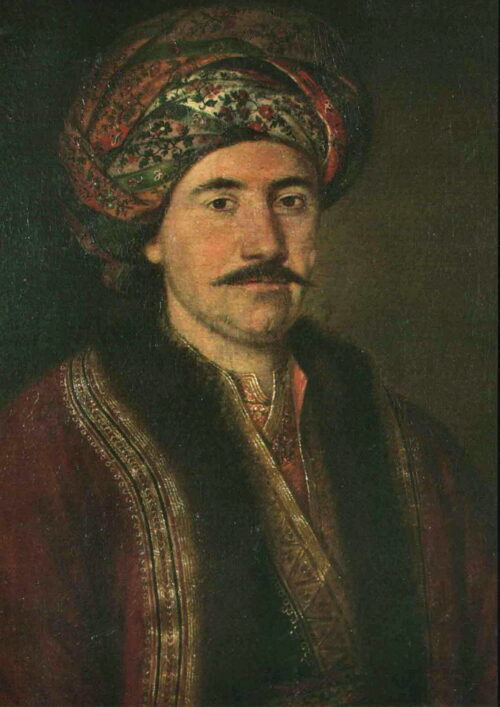A Knez and His Purse: Power, Wealth and Corruption in Miloš Obrenović’s Serbia and Beyond

Event: Seminar
Location: NEC conference room & Zoom
9 October 2025, 16.00-18.00 (Bucharest time)
Michał WASIUCIONEK, Postdoctoral researcher, Transnational histories of ‘corruption’ in Central-South-East Europe (1750-1850), New Europe College; Researcher, “Nicolae Iorga” Institute of History (Bucharest), Romanian Academy
Join Zoom Meeting
https://us02web.zoom.us/j/82048125569?pwd=2t0JrJi392OuWKF5GbmlUI5GcdSLeN.1
Meeting ID: 820 4812 5569
Passcode: 399756
In the history of the Balkans, traditional historiographies have generally framed the nineteenth century as a watershed that brought about a radical break with the “Ottoman yoke” and allowed the region’s peoples to resume their ‘natural’ historical trajectory as part of the European world following the path of national state-building and modernization. Although in recent decades the historiographical paradigm has been refined and nuanced, the basic assumptions behind this narrative have proven difficult to dislodge and the Ottoman past has continued to be perceived as an obstacle that the emergent nation-states had to overcome. Among these vestiges, the notion of corruption played a central role.
The scope of my paper is to unsettle these clear-cut dichotomies by examining the case study of the emergent Serbian polity that illustrates well the inherent tensions that force us to refine our notions of corruption in the early nineteenth-century Balkans. Emerging from the turmoil of two uprising against the Porte, the Serbian kneževina under Miloš Obrenović was in many respects a project marred with contradictions that frequently boiled over into open political conflict. Firstly, Serbia’s break with the Ottoman Empire was only a partial and gradual one; secondly, despite the elements of Western European political culture and vocabulary adopted by the Serbian elite, the upper stratum of power-holders in the kneževina was formed within the early nineteenth-century imperial realities that continued to shape their political behavior. Finally, the third axis was formed by the obvious imbalance of power between the fabulously wealthy Prince Miloš, whose political power was greatly enhanced by his financial assets, and the rudimentary character of the political and administrative institutions that other members of the elite could repurpose to enhance their position. As a result, the emergent debate over corruption was deeply entangled with the political dynamics of the Serbian political scene and embedded into the post-Ottoman political culture of the principal actors.
By drawing on correspondence of major figures of the Serbian political scene and engaging in a lopsided comparison with the parallel developments in the Ottoman Empire, the presentation will provide an in-depth analysis of the dynamics that underpinned Serbian politics in 1820s and 1830s, focusing on the ways in which the structural contradictions fueled and shaped the notion of corruption.
*
This event is part of an ongoing series of public seminars organized under the ERC research project “Transnational histories of ‘corruption’ in Central-South-East Europe (1750-1850)” – TransCorr, hosted by New Europe College.